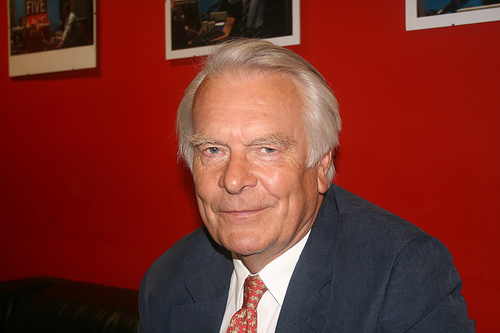Home
LORD OWEN ‘RELUCTANT’ TO TESTIFY FOR THE PROSECUTION
The prosecution has requested that the judges call Lord David Owen to give evidence as a court witness in the case of Radovan Karadzic. Lord Owen is reluctant to testify as a prosecution witness in order not to "jeopardize the future independence and impartiality" of international negotiators
 David Owen
David Owen As in the Slobodan Milosevic case, Lord David Owen is reluctant to respond to the prosecution’s summons to testify at the trial of former Bosnian Serb leader Radovan Karadzic. The prosecution has therefore asked the judges to call former British foreign minister and European peace negotiator in the former Yugoslavia to testify as a court witness.
The motion filed by the prosecution on 18 May 2009 was unsealed yesterday at Karadzic’s request. The prosecution indicates that when it called Lord Owen to testify at the Milosevic trial, he ‘took the position that future independence and impartiality of international negotiators may be jeopardized if they were called upon to testify in cases involving parties to a dispute they were charged with mediating’. For that reason, Lord Owen doesn’t wish to be associated "too closely" with the prosecution to ‘avoid the impression that he was taking sides in the trial’, the motion contends.
The prosecution has proposed to the judges to call Lord Owen under the same conditions as the Trial Chamber did in the Milosevic case. The prosecution maintains that Lord Owen’s initial statement, the transcripts of his evidence and other exhibits admitted at the trial of Slobodan Milosevic should be admitted now. All other documents considered relevant for the evidence of Lord Owen by either the prosecution or the defense should be submitted to the Trial Chamber 14 days prior to his testimony.
Lord Owen, the prosecution goes on to say, has ‘in depth knowledge’ of the events in the field, the result of his mediation from 27 August 1992 to 31 May 1995. Lord Owen met with the leaders from the Balkans to ‘discuss peace plans and ceasefires in order to ease the suffering of the civilian population’ and has written about his experience in a book Balkan Odyssey published in 1995, the prosecution notes.
According to the prosecution, Lord Owen’s meetings with the accused Karadzic and their telephone conversations are particularly relevant. Judging by the book and his evidence in the Slobodan Milosevic trial, Lord Owen will be focusing on the crimes the Serbian forces committed in BH in 1992, the siege of Sarajevo and encirclement of Srebrenica, the positions of the parties in the various negotiations, including the Vance-Owen plan, the hostage crisis, the hierarchy of power with the Bosnian Serb leadership and the objectives of the Bosnian Serb leadership.
Linked Reports
- Case : Karadzic
- 2009-06-03 KARADZIC WONDERS WHY HE HAS BEEN INDICTED DESPITE SO MUCH EXCULPATORY EVIDENCE
- 2009-05-27 ALL THE PRESIDENT'S MEN
- 2009-05-26 HOLBROOK’S ‘DIPLOMATIC SLEIGHT-OF-HAND’
- 2009-07-08 KARADZIC’S MOTION ON HOLBROOKE AGREEMENT DENIED
- 2009-07-09 KARADZIC DENIES RESPONSIBILITY FOR TWO MARKALE EXPLOSIONS
- 2009-07-23 KARADZIC ANNOUNCES HE WOULD DEBUNK ‘SREBRENICA MYTH’
